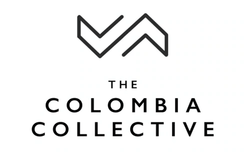February 06, 2024
Coffee Confessions with Cafetal De La Trinidad
We're sitting down with Anna Cave-Bigley from Cafetal De La Trinidad, the iconic Colombian Coffee Farm known for it's rich history of coffee and cattle farming. The lush landscape is just a couple of hours from Colombia's capital and now hosts tours and guests stays for those looking to delve a little deeper into the world of Colombian coffee. Here, the wonderful Anna talks us through the farm's unique coffee growing process and shares some expert knowledge and tips surrounding Colombian coffee culture.

Interview with Anna Cave-Bigley
What is your favourite type of coffee?
"Our Estate Blend - as a pour over! And (total confession) with a splash of milk."
What is your favourite way to prepare coffee?
"Usually with my eldest son Lorenzo. Music on, beans being meticulously hand picked from the packet and placed carefully into the grinder. And post grind, into the Chemix - to share with the hubs."

Could you talk us through the process of producing your coffee at Cafetal de la Trinidad?
"It is a painstakingly beautiful process! Every part of the journey is fundamental to the end cup you sip. We first hand pick the coffee when the beans turn a deep (but not too deep) red, often having to return to the same tree 4-5 times during the harvest as the beans don't all ripen - to the ripeness we are looking for - at the same time. We then pack the coffee in bags and transport it down the mountain, on mule. The first test then takes place - the coffee is placed into a barrel of water to clean the beans pre-fermentation, but also to see which beans float (meaning they are hollow inside) for discarding. We then place the beans in air tight containers for a 5 day anaerobic fermentation process, rolling them daily to mix the sugars. Post-fermentation, we de-pulp the beans in a machine and leave them to ferment further in their own sugars for another 24 hours, before washing (re-checking for floating beans) and placing them on our drying beds for 14 days to air-dry. During this time they are turned daily to reduce chances of mould appearing and are sorted by hand for defects (second grade coffee). Once humidity levels hit 14% we pack the coffee in dry sacks and transport it up to Bogota for milling and then roasting."
What makes your farm unique?
What makes your farm unique?
"It has a beautiful history and a beautiful soul. In its heyday, the farm was one of the largest coffee exporting farms in the country: it lived the highs and lows of Colombian coffee history throughout the 20th Century. During the conflict, the farm was abandoned for security reasons, and since 2016, we've been renovating it bit by bit to restore La Trinidad to its former glory. It is one of the very few farms in the country to retain its historic machinery, archives and architecture. The landscapes are spectacular, as are the people who live and work on the farm. It is a beautiful piece of Colombian coffee history and we love sharing it with the world."

How is Colombian coffee different to other types of coffee e.g. Brazilian etc?
"It depends totally on who we are comparing ourselves to. Compared to Brazil, the majority of Colombian coffee (approximately 97%) is Arabica (speciality coffee) as opposed to in Brazil, where the majority is Robusta (stronger caffeine content and taste profile (think an intense Italian roast). Colombian coffee is shade grown (planted amongst trees) meaning it isn't burnt by the sun (giving it a sweeter and lighter taste profile), and importantly means it is much more environmentally friendly, promoting biodiversity and protecting migratory birds."
Where are the best regions to discover Colombian coffee?
"Hmmmmm.... That is a hard one as there are officially 14 coffee municipalities across Colombia. I am obviously biased as we are 2 hours away from Bogota and the farm is truly unique, but if you want something a little different - try Minka! If you are looking to do a tour across various coffee estates in a single day - Manizales is your place."

What are your favourite coffee shops in Bogota and London?
"In London - Redemption Roasters are my absolute favourite. They roast the majority of their coffee with inmates, training them with an amazing skill set for employment when they leave prison. We have just sold them a batch of La Trinidad (our first shipment to London!) so you should be able to find us in their stores in March! And in Bogota - Tropicalia are (in my humble opinion) currently the kings of the roasting scene!"
Do you have any fun ways to incorporate coffee into a recipe?
"Ohhhh yes! A coffee cake or an affogato! Sublime."

